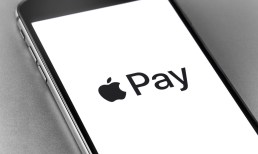Would that every contract would be smart — in other words, enforceable beyond relying just on trust or the courts (should trust be broken between parties) to ensure execution. One recent initiative has been the use of computer protocols — digital rights management, for example, and automated payments — to eliminate the guesswork of getting contractual clauses satisfied.
B2B payments can be one beneficiary of this type of contract enforcement, particularly in far-flung operations that rely on fund flows across intermediaries, currencies or even paper-based contracts, signed and faxed. In other words, business relies on an unbreakable digital handshake, whether between two companies or even between companies and freelancers (a type of B2B relationship in itself).
To aid in better understanding and increasing the adoption of smart contracts, the Smart Contracts Alliance has been launched by the Chamber of Digital Commerce, based in Washington, D.C., and is comprised of entities spanning the technology, legal and financial services arenas.
In an interview with PYMNTS, Perianne Boring, president of the Chamber of Digital Commerce, said that the group’s members are taking a three-pronged approach to help bring the payments industry into the big change that looms: educating companies and other stakeholders about blockchain and digital currency in general. This is an outreach that will extend to companies listed both within Fortune 100 and Fortune 500 designations, with additional emphasis on technology standards needed to facilitate digital payments in the first place, an evolving landscape that Boring said would “take years and a proactive effort” to develop and a separate effort to gain insight and influence in the legal and policy implications that govern smart contracts.
The basic concept of a smart contract itself can be illustrated in a simple transaction. Picture, said Boring, a wager between two parties, one in the U.K. and one in the U.S., betting on the outcome of the Miss Universe pageant. Each wagers the equivalent of $100, and that funding is held in escrow by a third party, which then releases the funds to the winner once the outcome is verified.
Such intuitive exchanges are complicated by the myriad of regulations governing, for example, the flow of remittances in the U.S., said Boring. These regulations can be “burdensome” as Boring termed it, with licenses required in each state for the transfer of money at both the federal and state levels. Digital currencies and technology, such as bitcoin and blockchain, help save both time and energy across payments, which can be viewed as “low-hanging fruit,” as Boring noted. And that is, in part, the key attraction that has led to early adoption by Goldman Sachs and other firms as they find cost savings in transactions.
Advertisement: Scroll to Continue
Traditional money flows also carry with them significant costs, which Boring said typically range between 9 and 13 percent and have impact on the foreign workers that have come to rely on cross-border remittances — what Boring termed the “middle class to the lower class” workers who cannot afford such cuts to their pay, before that pay even reaches them.

 Add as Preferred Source
Add as Preferred Source



